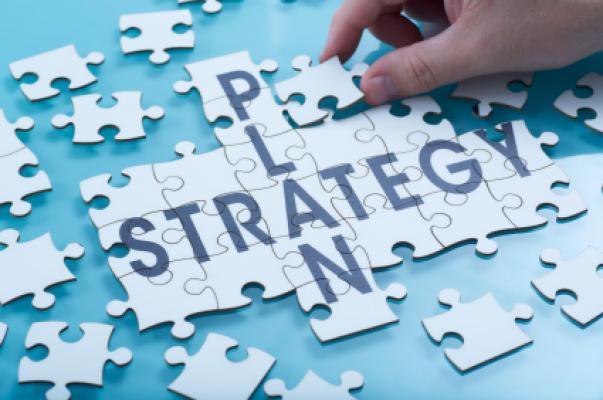
A commonly held belief is that it is better to start your own small business rather than buy a business already in existence. The reasoning is that entrepreneurs shouldn't incur the extra expense of paying for goodwill. It's also said that buying a small business is merely acquiring someone else's problems.
But in most cases, the best strategy for someone wanting to own his or her own small business is to acquire one that is already well established. Here are five principles to consider when making the decision about how to get into business.
1. Value of immediate income: Even though the entrepreneur starting from scratch will avoid having to pay someone else for "goodwill," there still is the cost of setting up and operating the company with no income to offset expenses. Sometimes it takes a year or so before a new company starts showing a profit. And in the majority of cases, someone buying a business can look forward to collecting income from day one, or shortly thereafter. Customers buying products or services already exist, and the company has the needed products in inventory or the support system ready to provide the services. Remember when making the cost comparison to calculate the revenue lost that is associated with starting a business that doesn't produce income for a while.
2. What's the entrepreneur's time worth? While the DYI entrepreneur is making arrangements with suppliers, deciding on product offerings, and setting up the marketing, service and other functions, the new owner of an ongoing company can focus more on learning the business and developing tactics for boosting revenues and profits. The owner's time is money and it usually is a better use of time to focus on building up what's already there, rather than establishing the relationships and creating the mechanisms so the company can begin to generate income.
Many entrepreneurs prefer to find their own location, negotiate the lease, line up vendors, interview and hire employees and establish the systems and infrastructure needed to operate. But these processes often take more time than anticipated--time that might be better spent making sales and improving efficiency of an established business.
3. Cost of capital equipment: If the kind of business being considered does not require much in the way of a cash investment--a brokerage for example, or if the equipment in an existing purchase candidate is old and out of date, there might be no strong reason to take over someone else's enterprise. Certainly not if it involves buying machinery that doesn't contribute to the business. But if capital assets of the business being considered are involved in the company's success, it's a better deal to buy a business with its used fixtures and equipment priced at the market or under-market rate usually allocated to such assets, rather than incurring the cost of new furniture fixtures, and equipment, along with the expense of installation and set up.
4. Training and consultation: Even investors in a business they know how to operate can benefit by taking over an existing company, if only for the consulting and training they usually can get for from the seller. And this assistance is likely a vital part of a deal, when a buyer is getting into an enterprise for which he or she lacks experience. Why do franchisees who want to expand to more outlets often prefer buying a business from other franchisees rather than create a new business to operate under the franchisor? It's because the seller can provide important insight into handling the customers, exploiting the opportunities for growth and managing the current employees.
5. Financing the business: There are business buyers who resist buying a business because they don't like the idea of working for the seller--that is, having to pay some of their income to the person who sold the business. What they are forgetting is that those payments are possible to make, thanks to the revenue generated by the business. Besides, seller financing usually comes with the best terms available. Starting from scratch often requires a loan from a small business bank, or from a finance company associated with the firm that provides the equipment needed in the business. And that's usually a high-cost loan calling on the borrower to pledge assets in addition to the equipment and fixtures being used in the business.
Yes there are businesses for an entrepreneur to get involved with that are better to start from scratch than to purchase. But those are the exceptions. In most cases, if a person ready for his or her own business evaluates the options using the five ideas presented here, the choice usually will be to buy a business already in existence.
Contributor:


For over 25 years Peter Siegel, MBA has been providing niche business purchase financial advisory and loan placement services with SBA Loans, Non SBA Financing, Retirement Plan Conversions, Note Restructures, etc. Call me regarding business purchase financing and to get pre-qualified: 925-785-3118.
ServingNationwide - All Areas
I am the Founder Of BizBen.com. I consult daily with intermediaries, business buyers, owner/sellers & advisors daily about buying and selling California small to mid-sized businesses. Contact me today about joining & utilizing BizBen, consultations, & advisory services.
ServingNationwide - All Areas
McGovern Escrow Services, Inc., is a leading independent escrow company. We are a trusted partner with our clients, assisting them through the tangled bulk sale & liquor license transfer process. We provide attentive, quality & innovative customer service. Phone Elizabeth McGovern at 415-735-3645.
ServingSan Francisco Bay Area, North Bay, Central Valley
I am an experienced entrepreneur, attorney, & business professor. I & my EvergreenGold® team offer business owners sound advice & expertise to build business value & achieve profitable sales. Call me today for a business evaluation & SWOT analysis for your business anywhere in the USA.
ServingNationwide
The Veld Group provides a refreshing approach to Business Brokerage, Mergers & Acquisitions and Business Consulting and Valuations. From Your Street to Wall Street, we cater to Main Street Businesses as well as more complex Strategic Firms and Start-Ups.
ServingSouthern California
Laundry consulting, due diligence, buyer representation: We preview laundries for you and evaluate them. 28 years laundry industry experience: buying, selling, valuing, retooling, analyzing, consulting services for laundry buyers and entrepreneurs in California. Contact us today about our services.
ServingSouthern California
Cheryl's a restaurant business broker, over 25 years in the bar and restaurant industry coupled with a J.D. Cheryl works tirelessly to create successful strategies and effective negotiations for those who wish to purchase a new or sell an existing bar, restaurant, cafe, or night club. 415-309-2722
ServingCity Of San Francisco
If your business involves alcoholic beverage sales, we can help. Obtaining a liquor license transfer or selling a business with a license in California does not have to be a frustrating and overwhelming process. We have procured thousands of licenses for our clients.
ServingAll Of California

Laundromats and coin operated Laundromats are popular choices among business buyers as they often can be successfully run as an absentee run business. You need to be strategic about when you sell your Laundromat so you don't get taken to the cleaners by a buyer and so that you maximize your profits.

Buying a professional service business, like a dental practice, is one of the most profitable ventures you can enter into if you are considering becoming a small business owner. In this blog, Peter Siegel, MBA discusses six things you need to know about buying a successful dental practice or office.

Chuck Post a laundry consultant, specialty broker, buyer representative & due diligence advisor starts this discussion on why it's important to have an exit strategy in mind while buying a laundromat! He & others explain why this concept is so important for buyers especially in the laundry business.

Buying a liquor store can present some major challenges to business buyers - a recent client on the BizBen ProBuy Program relates to Peter Siegel, MBA what the major challenges may be when searching for and buying a Californa liquor store business. I welcome other Advisors to weigh in on this topic.

Sometimes business brokers just can't win with their clients, because if an offer comes in too fast & too early then they must have lowballed the price & the seller is suspicious, and if not enough offers come in after putting the business on the market - they may look unproductive to their clients.

